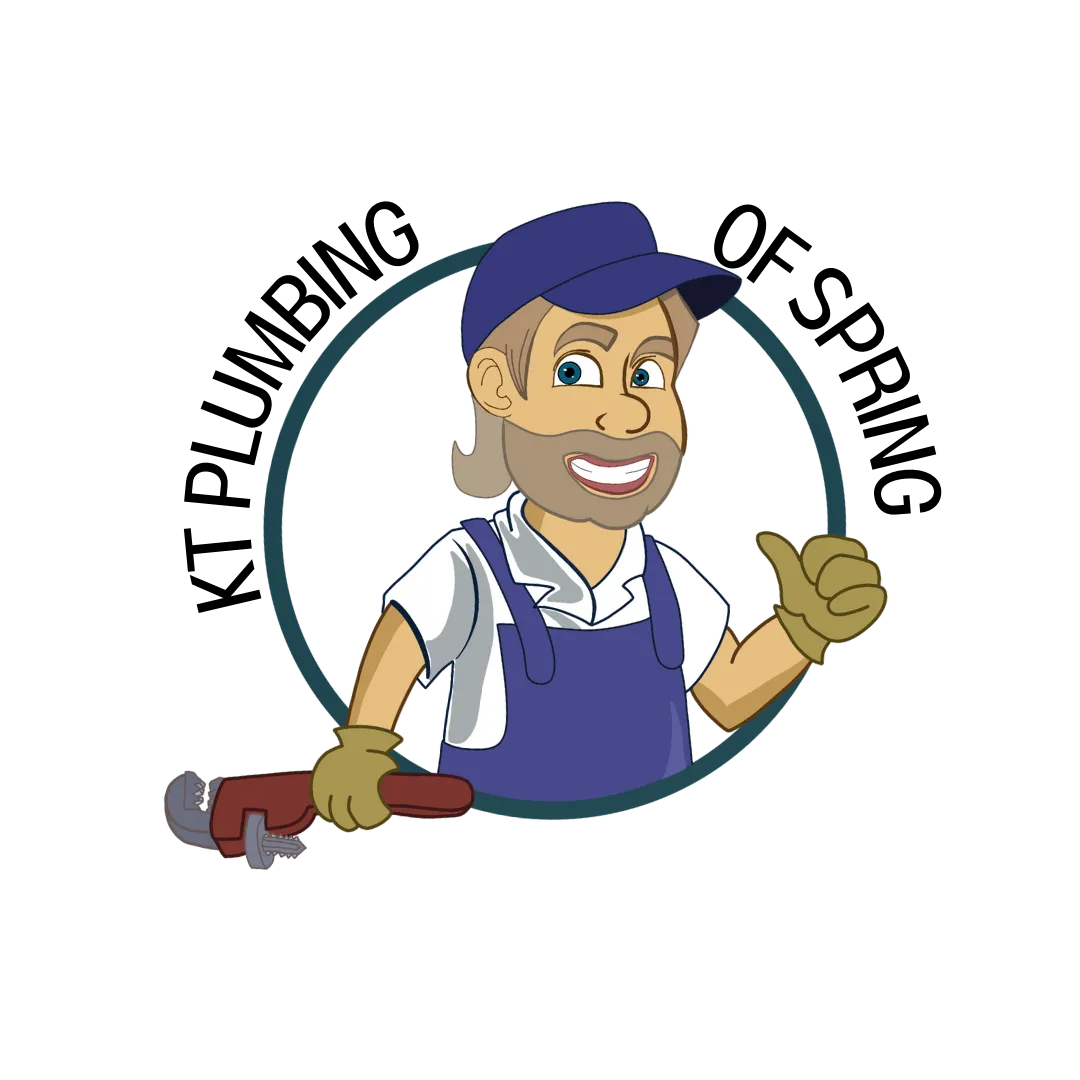Troubleshooting Tips to Fix Common Water Heater Problems in Spring
Keeping your home running smoothly is essential, and your water heater plays a vital role in that. We count on it for our everyday tasks, so it's important to keep it in good working order. This guide will give you some troubleshooting tips to help you handle common water heater problems. By addressing these issues as soon as they arise, you can keep your water heater working reliably and prevent any unexpected inconveniences.
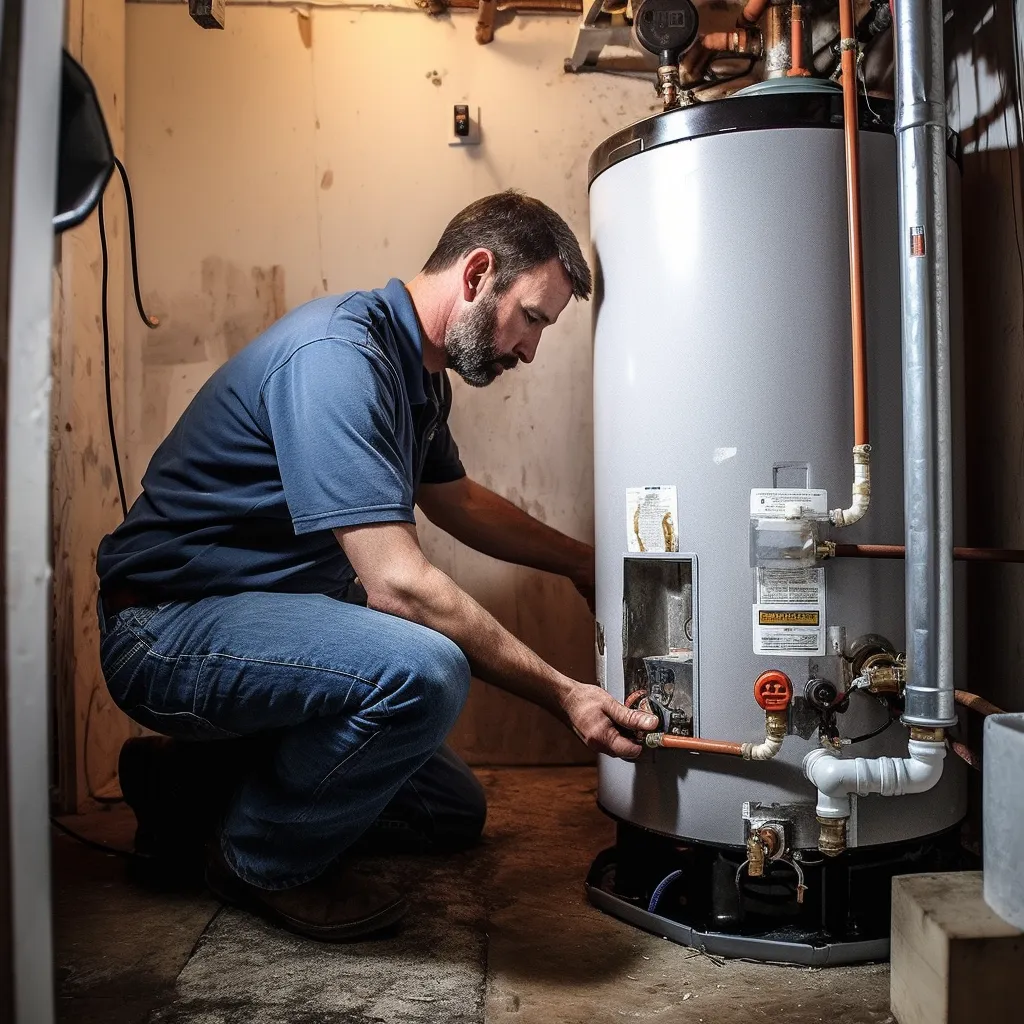
Is your water heater tank leaking?
If you see water leaking from your water heater, it could be because of a problem with the pressure relief valve or the tank itself. To fix this issue, follow these steps:
Make sure that the pressure relief valve is working correctly. If you notice any leaks or if it is not releasing pressure as it should, it may be time to replace it. Refer to the manufacturer's instructions or reach out to a professional for help to ensure that the replacement is done correctly.
Make sure to thoroughly check the tank for any signs of corrosion, like rust or deterioration. If you see any damage or corrosion, it's important to replace the tank right away to prevent more leaks or potential problems.

The water is discolored
If the water coming from your water heater looks discolored, it may be a sign that you need to flush and descale the unit. Here's what you can do:
Check if the pressure relief valve requires replacement. A malfunctioning valve can lead to issues and might require the expertise of a professional to install a new one.
To improve how your water heater performs and get rid of unwanted sediment and mineral buildup, try using a simple mixture of white vinegar and water. Flushing your water heater with this solution can make a big difference.
Check the anode rod for rust or decay. If you see any, it's best to replace the anode rod to stop more harm from happening.
If needed, it is advisable to seek the help of a professional to carry out a complete descaling procedure.
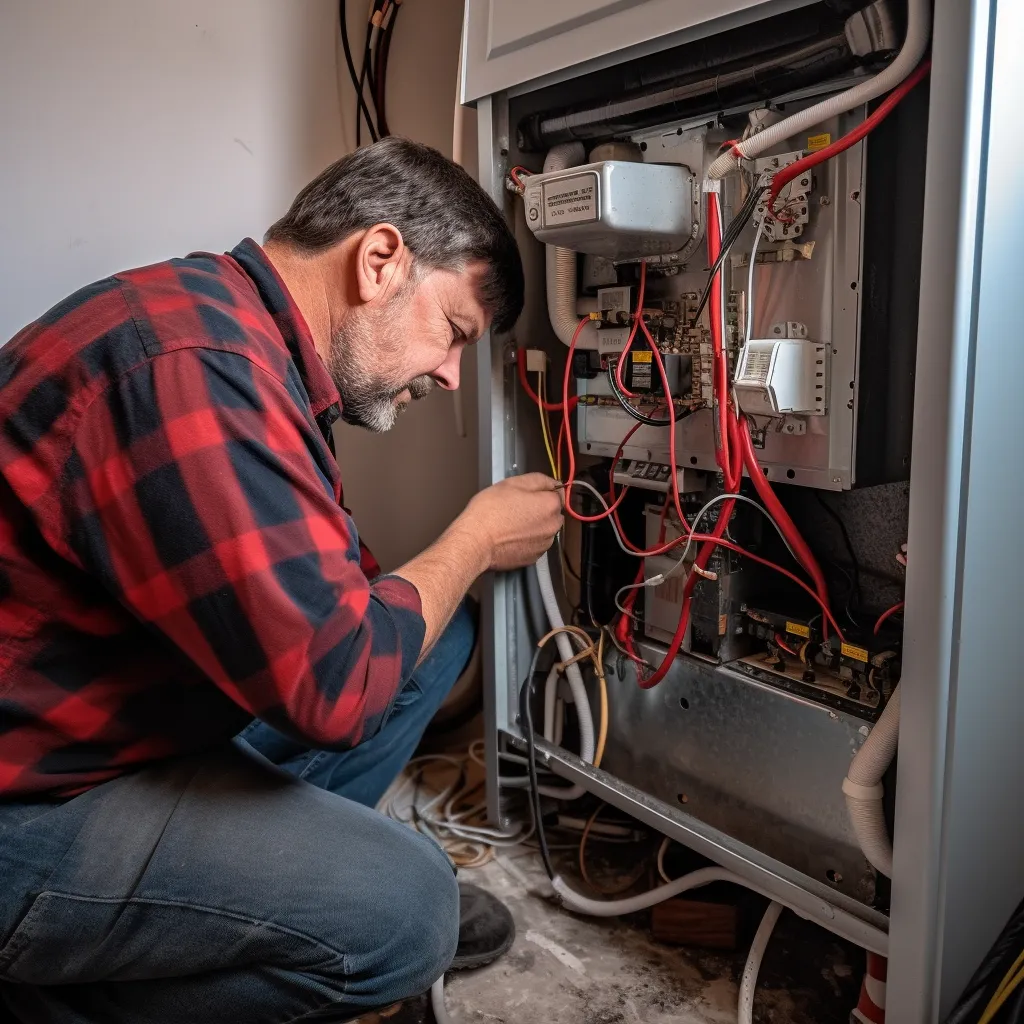
Do you notice a foul odor coming from your water?
If your water heater is facing issues with bacteria buildup causing a bad smell, here are some steps you can take to address the issue:
It's important to hire a professional to inspect your water heater tank in order to assess whether or not it needs to be replaced.
To eliminate any unpleasant smells, it is recommended to flush your water heater regularly using a mixture of white vinegar and water. This simple solution will help to keep your water heater fresh and odor-free.

Water heater is making a lot of noise
If your water heater is making strange noises, it could be due to a buildup of sediment or loose components. To fix these problems, follow these steps:
To keep your water heater in good shape, make sure to flush it regularly. Flushing means removing all the sediment that builds up inside the tank by draining the water. This helps control sediment buildup and keeps your water heater working efficiently.
Get a licensed plumber to check the insides of your water heater. They'll make sure all the parts are secure and tight.


Tank takes a long time to heat up
If your tank water heater is taking too long to heat up, there are a few possible reasons for this. It could be due to a faulty thermostat, a tank that is too small for your needs, or mineral deposits that have built up over time. Here are some steps you can take to fix the problem:
Check the thermostat and ensure it is set to the temperature you want. If needed, make adjustments to it.
Is your water not heating up like it should? The problem might be a broken thermostat.
It's important to have a professional check the tank for mineral buildup. As time goes on, minerals can build up and create problems with heating.
If you often find yourself running out of hot water, it could mean that your current water heater tank is too small for the needs of your household.
Experiencing low hot water pressure
If your hot water pressure is low, it may be caused by a small tank or leaks in your plumbing. To fix this problem, try these steps:
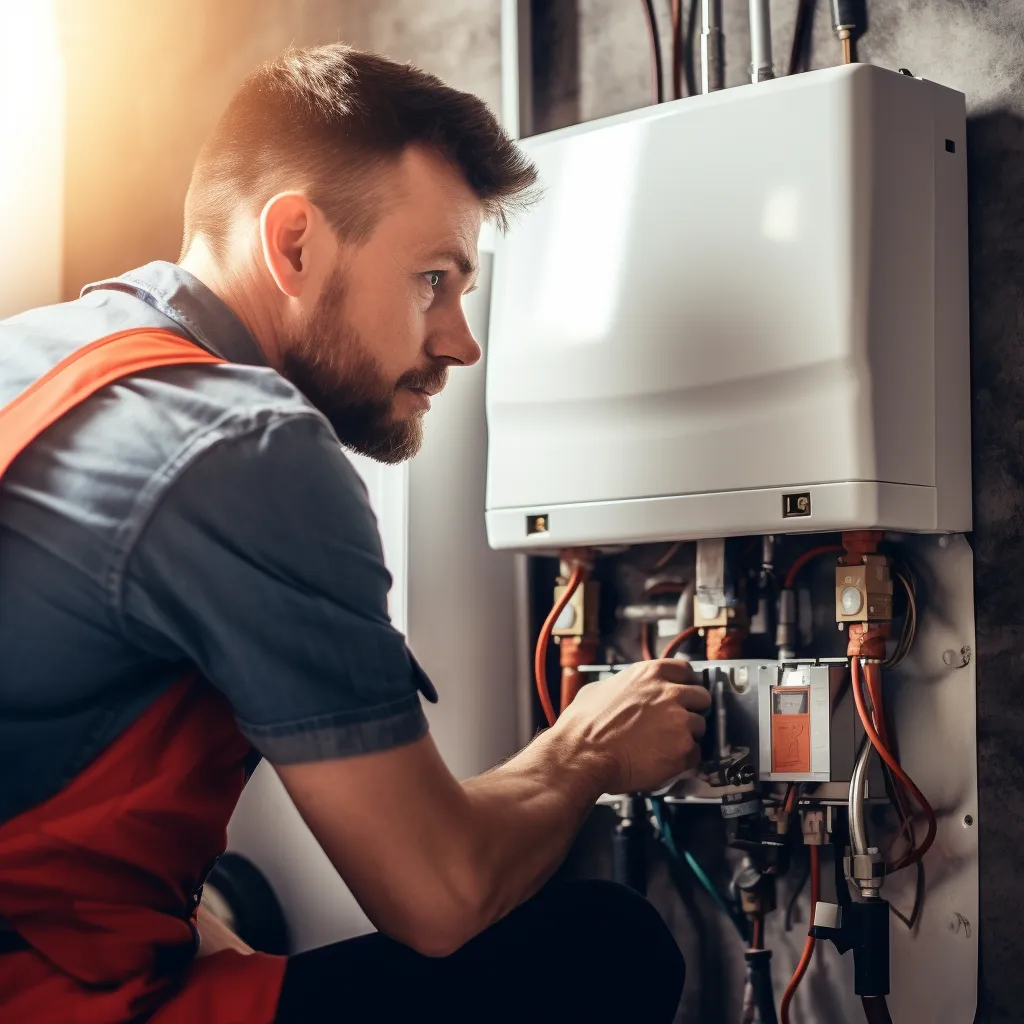
Make sure your water heater is the right size for your home's hot water needs. If it's too small, think about getting a bigger tank to boost the hot water pressure.
Ensure that you hire an experienced plumber to check your plumbing system for any leaks. Leaks can lead to a decrease in hot water pressure. If the plumber finds any leaks, they can fix them to restore the correct water flow.
Make sure the pressure relief valve is working properly. Its purpose is to release too much pressure from the water heater tank.


Shortage of hot water
If your hot water supply is running low and it cools down fast, there could be a few reasons causing this problem. These can include a thermostat that's not working properly, a water tank that is too small, or pipes that are clogged. Here are some helpful tips to help you troubleshoot this issue:
Make sure the thermostat on your water heater is working properly. Make sure it is set to the temperature you want and that it controls the heating element accurately.
Get your water heater inspected by a licensed professional for reliable and thorough assessment.
If your current water heater isn't able to keep up with your hot water needs, it might be too small.
How to prevent water heater problems
Preventing future water heater problems is important to ensure the longevity and efficiency of your unit. Here are some simple steps you can take to keep your water heater in good working condition:

Regular Maintenance: Schedule annual maintenance checks with a professional plumber to inspect and flush your water heater. This will help remove sediment buildup, extend the lifespan of your unit, and prevent potential issues.
Adjust Temperature: Set your water heater's temperature to a moderate level (around 120 degrees Fahrenheit or 49 degrees Celsius). This will not only help prevent scalding accidents but also reduce strain on your unit, leading to less frequent repairs.
Install a Expansion Tank: When water is heated, it expands, creating pressure within the tank. Installing an expansion tank will help relieve this pressure, preventing excessive strain on the water heater and reducing the risk of leaks or bursts.
Insulate Pipes: Insulating hot water pipes can help minimize heat loss and maintain higher water temperatures, reducing the workload on your water heater. This insulation also helps prevent pipes from freezing during colder months.
Use a Water Softener: If you live in an area with hard water, consider installing a water softener. Hard water contains mineral deposits that can accumulate in your water heater, leading to reduced efficiency and potential damage. Using a water softener will help prevent these issues.
Keep the Area Clear: Ensure there is enough space around your water heater. Avoid storing items or placing obstacles near the unit as this can restrict airflow, causing overheating and potential malfunctions.
Replace Anode Rods: Anode rods help prevent tank corrosion by attracting corrosive elements. Over time, these rods deteriorate and should be replaced every few years to maintain the tank's integrity.
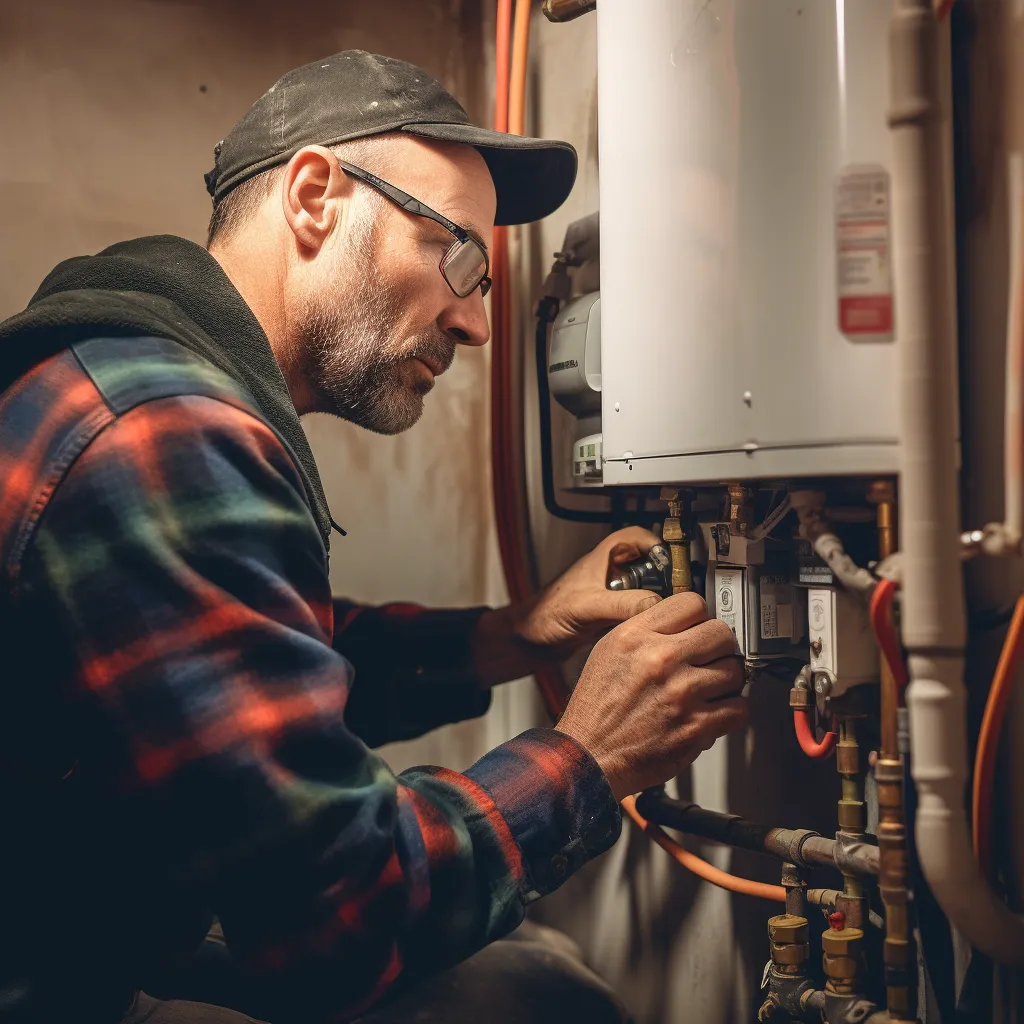
By following these preventive measures, you can minimize the chances of future water heater problems and enjoy hot water without any interruption. Remember to always consult a professional plumber for any maintenance or repairs to ensure safety and efficiency.
Know when to bring in a water heater expert
It's important to know when to bring in a professional plumber. While there are some minor plumbing issues you can handle yourself, there are others that require the expertise of a licensed plumber. Here are a few signs that it's time to call in the professionals:
Persistent leaks: If you have a leak that continues to come back even after you've tried fixing it, it's time to call a licensed plumber. They have the knowledge and tools to identify and repair the source of the leak effectively.
Low water pressure: If you're experiencing consistently low water pressure throughout your home, it could be a sign of a larger plumbing issue. A licensed plumber can inspect your pipes and water heater to determine the cause and make the necessary repairs.
Water heater problems: If your water heater isn't providing enough hot water or is making strange noises, it's time to call in a licensed plumber. They can diagnose and fix the issue, ensuring your water heater works efficiently and safely.
Clogged drains: While minor clogs can often be cleared using household remedies, persistent or recurring clogs may indicate a more significant problem. A licensed plumber has the tools and expertise to clear stubborn clogs and prevent them from happening again.
Sewage backup: If you're experiencing sewage backup in your home, it's essential to call a licensed plumber immediately. Sewage backup can pose health risks and indicates a serious plumbing issue that needs professional attention.
Remember, a licensed plumber has the training and experience to handle complex plumbing problems safely and effectively. Don't hesitate to call in the professionals when you're faced with these signs.
What to look for in a licensed plumber
When searching for a licensed plumber, it's crucial to keep a few key factors in mind:
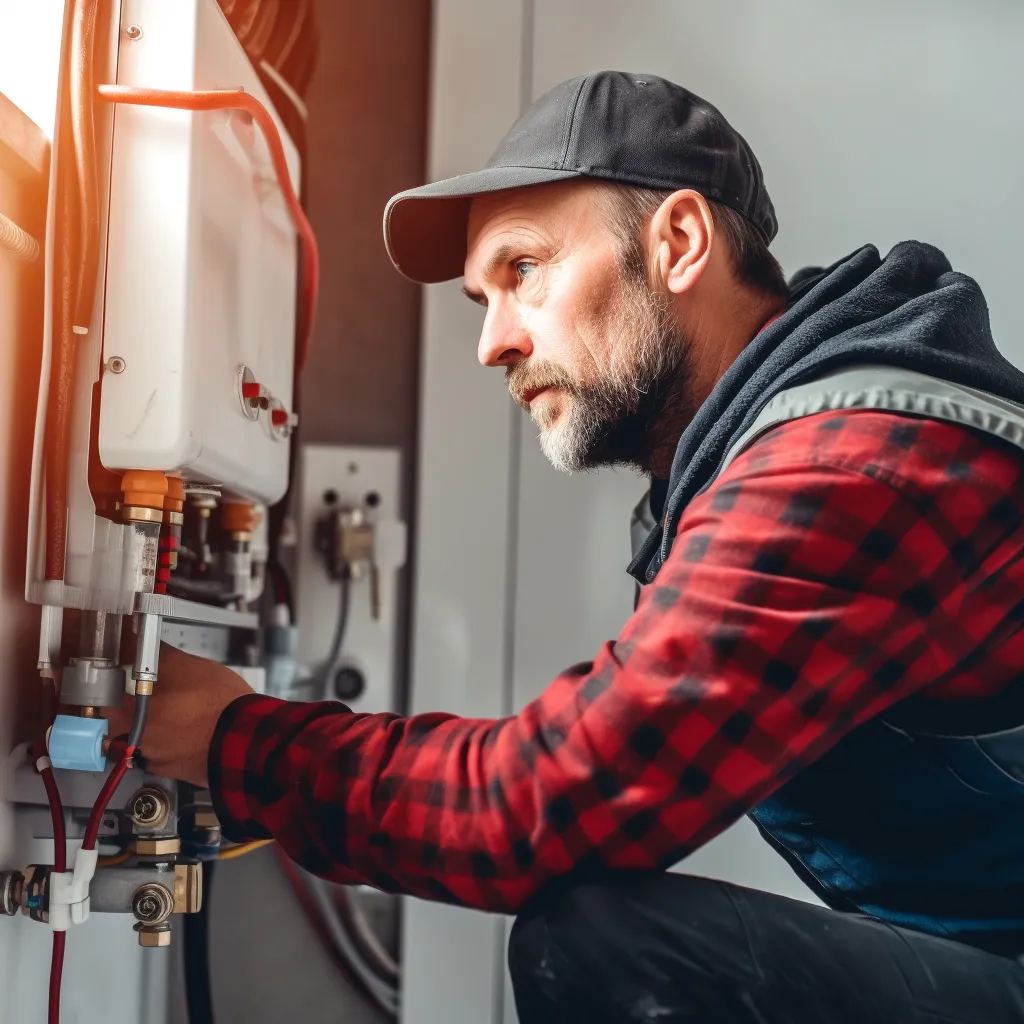
First and foremost, verify that the plumber is properly licensed and insured. This ensures that they have met the necessary requirements to perform plumbing work safely and effectively.
It's essential to consider the plumber's experience and expertise. Look for a plumber who has a solid track record and extensive knowledge in their field. This will give you confidence in their ability to handle your plumbing needs.
Another important aspect to consider is the plumber's availability and response time. Plumbing emergencies can happen at any time, so having a plumber who is readily available and able to respond quickly is vital.
Reviews and recommendations are valuable resources when searching for a licensed plumber. Check online platforms and ask for referrals from friends or family. Positive feedback from previous customers is a good indication of a plumber's reliability and quality of work.
Finally, obtain multiple quotes from different plumbers. This allows you to compare costs and choose the best option that suits your budget and needs.
Get in touch with a skilled expert
Having trouble with your water heater? It's best to call a licensed plumber for a lasting fix. With their expertise, they can identify the root cause of the problem. To keep your home running smoothly, follow these tips to deal with water heater issues. If you need more help, reach out to an experienced plumber who can assess your water heater and offer effective solutions to get it back up and running.
Contact Us
